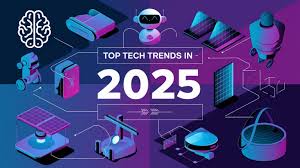Real estate has always been a reflection of how we live, work, and interact with the world around us. Over the years, the industry has evolved from simple living spaces to technologically advanced environments that prioritize comfort, convenience, and now—sustainability. As someone who closely follows real estate trends, I’ve seen how the demand for smart homes and eco-friendly living is shaping the market in 2025 and beyond.
In this blog, I want to share insights into why smart homes and sustainability are the future of real estate, how they are redefining lifestyle, and why these changes matter to us as homeowners or investors.
Why Sustainability Matters in Real Estate
The shift toward sustainable living is no longer just a trend; it’s a necessity. Climate change, energy costs, and resource conservation have pushed the industry to adopt environmentally responsible practices. Homes that reduce environmental impact are now in demand, and this is shaping buying decisions significantly.
Here are a few reasons why sustainability is becoming a priority in the housing market:
- Energy Efficiency: Modern homes now feature solar panels, energy-efficient lighting, and smart thermostats to reduce electricity use.
- Water Conservation: Fixtures like low-flow taps, smart irrigation systems, and rainwater harvesting help conserve water resources.
- Eco-Friendly Materials: Builders are increasingly using recycled or renewable materials for construction.
As I look at these changes, it’s clear that sustainable homes are not just about saving the planet—they are about lowering costs and ensuring long-term value for homeowners.
The Rise of Smart Homes
Technology has changed the way we interact with our living spaces. Smart homes offer a level of control and convenience that was unimaginable just a decade ago. But what makes a home “smart”?
- Automated Systems: From lighting and climate control to security and entertainment, automation makes homes more efficient and safer.
- Remote Access: Control your home environment from anywhere using apps and voice commands.
- Energy Management: Smart meters and sensors help monitor and reduce energy consumption.
When I think about the future, I see homes that adapt to our lifestyle, optimize resource use, and provide a seamless experience. These innovations are not just for tech enthusiasts—they are becoming a standard expectation in new developments.
Combining Sustainability and Smart Technology
What truly excites me about the future of real estate is the combination of sustainability and smart technology. Imagine a home where solar panels generate energy, and an intelligent system ensures that power is used efficiently. Rainwater harvesting systems can be paired with smart sensors to optimize usage.
Here’s why this integration works so well:
- Cost Savings: Energy-efficient smart systems reduce utility bills significantly.
- Comfort and Convenience: Automation improves daily living without compromising eco-friendly goals.
- Increased Property Value: Homes that incorporate both sustainability and smart tech are more attractive to buyers.
This is not just theory. Many developers are already incorporating these features into their projects. In fact, urban communities with green certifications and smart infrastructure are becoming some of the most desirable locations for homebuyers today.
Investing in the Future
For anyone considering real estate investment, this is the right time to focus on properties that embrace sustainability and smart technology. Buyers are increasingly conscious of their carbon footprint, and homes that address these concerns will have a competitive advantage in the market.
Developers, on the other hand, are under pressure to meet new environmental regulations and customer expectations. This means smart and sustainable homes will no longer be premium options—they will become standard in the coming years.
When I think about how this connects with other industries, it’s clear that lifestyle choices influence everything from the products we use to the homes we live in. For instance, I’ve noticed discussions about mr. fog switch and other lifestyle products in communities that also talk about modern living. It shows how consumer behavior is shifting toward tech-driven, convenient, and sustainable choices in all areas of life.
What the Future Looks Like
Looking ahead, the future of real estate will be shaped by:
- Net-Zero Homes: Houses designed to produce as much energy as they consume.
- Community Sustainability: Neighborhoods with shared resources, green spaces, and renewable energy systems.
- AI-Driven Homes: Properties that predict user needs and adjust automatically for efficiency.
These innovations will not only benefit the environment but also improve our quality of life. Real estate is no longer about owning property—it’s about creating an intelligent and sustainable lifestyle.
In my view, embracing this change is essential. Whether you’re buying your first home, upgrading to a smart property, or investing in real estate, sustainability and technology should be at the top of your list. This shift represents progress and a promise of better living for the future.
On a personal note, as someone who values modern conveniences, I can’t help but see similarities in how I choose products and how I look at homes. Just like when I first tried mr frog vape, I realized how innovation makes things more enjoyable and efficient. The same principle applies to homes—technology and sustainability make life simpler and smarter. And much like the adaptability of fog switch, smart homes offer flexibility that traditional houses can’t match.
Final Thoughts
Smart homes and sustainability are not passing trends—they are the pillars of the future real estate market. Combining green practices with intelligent technology is creating homes that are efficient, convenient, and valuable. This shift is good for the planet, good for homeowners, and good for investors.
If you’re thinking about your next property or just curious about where real estate is headed, now is the time to embrace this change. The future is smart, sustainable, and full of possibilities—and I’m here for it.





Comments